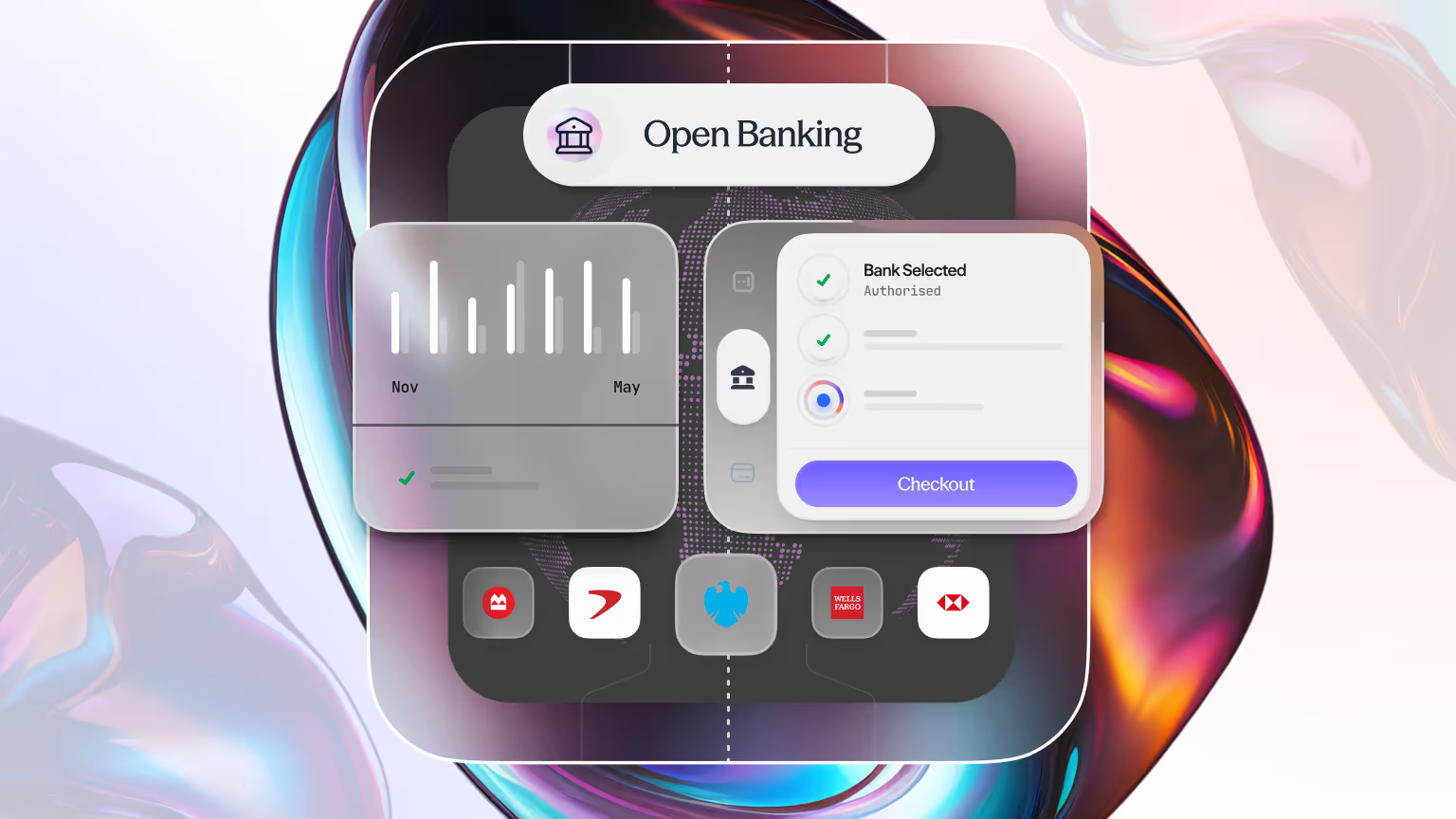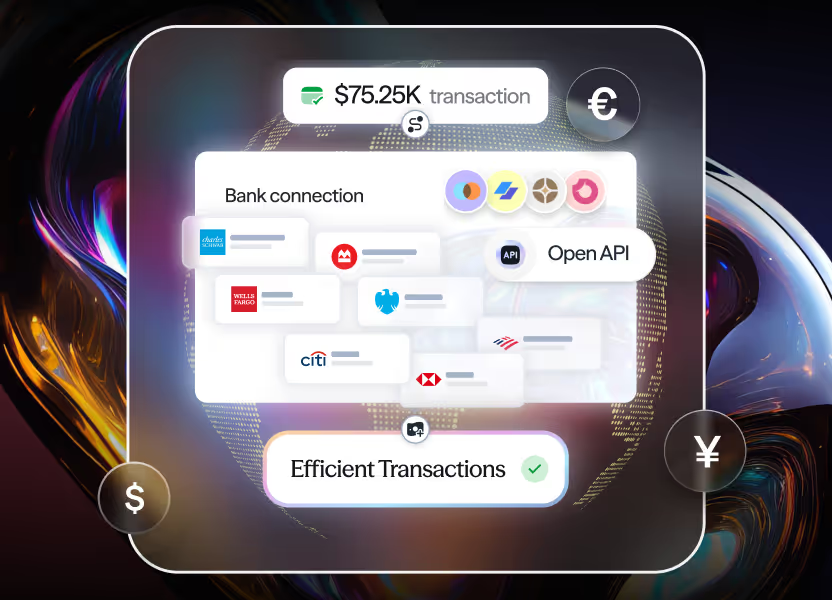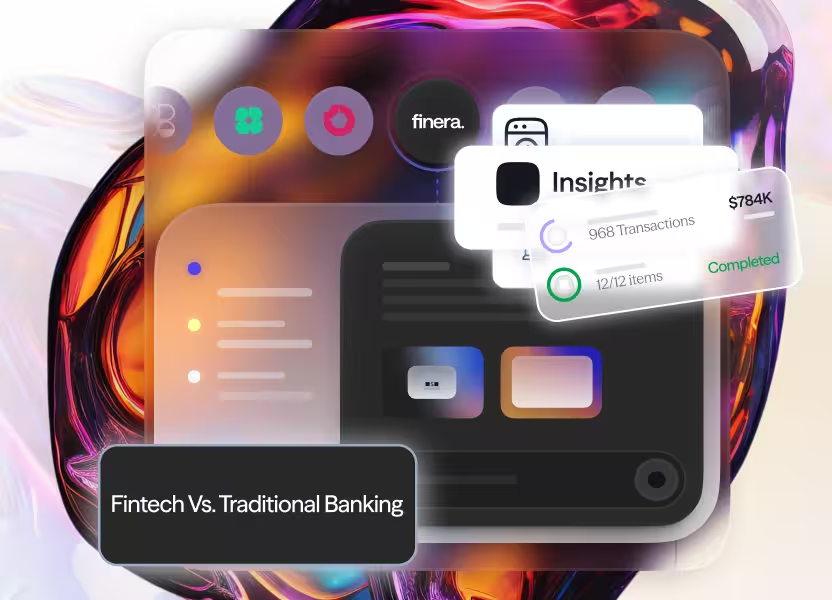Is Your Business Ready for Open Banking? Here’s How to Tell
Discover when to adopt open banking and how it can transform your payments strategy.

Open banking has moved from a niche fintech buzzword to one of the most important forces reshaping global payments. What began as a regulatory initiative is now enabling merchants, payment service providers (PSPs) and consumers to transact faster, more securely and at lower costs than ever before.
In the past, payment innovation was largely dictated by banks and card networks. Today, open banking is flipping that model, giving merchants more choice, more control and more ways to deliver seamless checkout experiences.
But here’s the real question for business leaders:
Is your business ready for open banking?
Understanding where it came from, why it matters and how to identify the right time to adopt it is essential if you want to stay ahead in competitive markets.
The Evolution of Open Banking: From Compliance to a Competitive Edge
Open banking didn’t appear overnight. Its origins date back to the early 2010s, when regulators in the UK and EU began exploring ways to increase competition and innovation in financial services. The landmark moment came in 2018, when the EU’s Revised Payment Services Directive (PSD2) came into effect, requiring banks to share customer-approved financial data with licensed third parties via secure APIs.
This simple shift, from closed bank systems to open, API-driven access, sparked a wave of innovation. Fintech startups began building new payment solutions, budgeting apps and lending platforms. Merchants gained the ability to connect directly to customers’ bank accounts, bypassing expensive card networks for certain transactions.
Since then, open banking frameworks have rolled out across Australia (Consumer Data Right), Brazil (Open Banking Brazil) and other regions in Asia and the Middle East. Each market’s implementation is different but the common goal remains the same: put customers in control of their financial data and give them more ways to pay.
5 Things You Didn’t Know About Open Banking
- It’s Safer Than Screen Scraping: Before open banking, almost 100% of account aggregation tools relied on risky screen scraping, where customers had to hand over online banking passwords. Today, secure APIs allow credential-free, encrypted access to data. (Source: )
- It’s Not Just Europe: While PSD2 made headlines in the EU, markets from Brazil to Australia have their own open banking ecosystems, many designed for global interoperability.
- It Can Reduce Fraud: Built-in Strong Customer Authentication (SCA) helps verify users in real-time, cutting fraud risk.
- It Works for B2B Too: Businesses can use open banking for supplier payments, payroll and instant settlements.
- It Can Boost Conversions: Direct bank payments bypass card-related declines, which are a major cause of cart abandonment.
Surprised by how much safer and more versatile open banking has become? That’s exactly why more merchants are exploring it now.
The Benefits of Open Banking for Your Business
While much of the early conversation around open banking focused on consumers, the benefits for merchants are substantial.
Faster Settlement Times: Traditional card transactions can take days to clear and settle, tying up cash flow. With open banking, account-to-account (A2A) payments settle in near real-time, often within minutes.
Higher Approval Rates: By connecting directly to the customer’s bank, you avoid many of the decline triggers associated with card payments - such as expired credentials or issuer suspicion for first-time purchases.
Lower Transaction Costs: Removing card schemes from the payment flow eliminates interchange fees and many cross-border mark-ups, particularly valuable for high-volume or low-margin merchants.
Enhanced Security: Strong Customer Authentication (SCA) is built into the API process, significantly reducing fraud risk.
Localised payment options: Open banking makes it easier to offer domestic bank-to-bank payments in multiple markets without managing separate contracts for each local PSP.
Think about the impact on your bottom line: what would faster settlements and lower fees mean for your growth targets this year?
How Open Banking Transforms Key Industries
Open banking is not just reshaping traditional finance. It is creating new growth opportunities across a wide range of industries.
For e-commerce, it enables faster, more secure transactions that improve checkout conversion rates. In subscription-based businesses, it streamlines recurring payments while reducing failed transactions. Even in high-risk verticals such as iGaming, open banking offers a compliant, secure way to verify customers and process payments instantly, helping operators improve acceptance rates and reduce fraud. It provides merchants with direct access to bank-level data and payment initiation, offering a powerful combination of speed, trust and cost efficiency that traditional payment methods often lack.
When Businesses Should Adopt Open Banking
Not every merchant needs to jump into open banking today but certain indicators suggest it could be a strategic advantage.
1. Your Customers Expect Instant Confirmation
If you happen to be in industries where speed matters, travel bookings, ticketing, gig economy payouts, customers want instant payment confirmation. Open banking delivers that without waiting for nightly batch settlements.
2. Your Decline Rates Are Too High
Payment declines are more than a nuisance and they can cost sales and erode trust. Open banking bypasses many card-related decline reasons, keeping checkout conversion rates healthy.
3. You’re Expanding Into Multiple Markets
Operating across borders often means juggling PSP contracts, compliance rules and settlement processes. Open banking provides a unified way to connect to multiple domestic bank networks through one API.
4. You Want More From Your Payment Data
Open banking’s secure data access supports better risk models, credit scoring and personalisation, without relying solely on traditional card transaction data.
Do any of these signals sound familiar in your business? If so, open banking might already be overdue.
The Future of Open Banking in Payments
As more regions roll out open banking regulation and infrastructure, its role in payments will grow. Merchants will increasingly use it alongside card acquiring, digital wallets, and alternative payment methods in a single unified checkout. For many businesses, the question isn’t if they should adopt open banking, it’s when.
Leveraging Open Banking for Business Growth and Payment Optimisation
Open banking has evolved from a compliance requirement into a payments enabler that helps merchants cut costs, increase conversion and deliver better customer experiences. For businesses navigating complex, multi-market payment ecosystems, it offers a way to consolidate, simplify and improve performance.
At finera., we integrate open banking alongside card acquiring, APMs and smart payment orchestration, all backed by 24/7 support. Talk to our team today to see how open banking can work for your business.
This article on payment methods is for informational and educational purposes only.
- Not Professional Advice: The content provided does not constitute financial, legal, tax, or professional advice. Always consult with a qualified professional before making financial decisions.
- No Liability: The authors, contributors, and the publisher assume no liability for any loss, damage, or consequence whatsoever, whether direct or indirect, resulting from your reliance on or use of the information contained herein.
- Third-Party Risk: The discussion of specific payment services, platforms, or institutions is for illustration only. We do not endorse or guarantee the performance, security, or policies of any third-party service mentioned. Use all third-party services at your own risk.
- No Warranty: We make no warranty regarding the accuracy, completeness, or suitability of the information, which may become outdated over time.
Frequently Asked Questions

Still Have Questions?
Let’s Find the Right Solution for You
Stay Connected with Us!
Follow us on social media to stay up to date with the latest news, updates, and exclusive insights!









